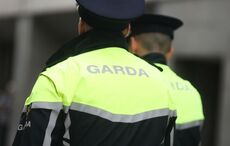The retired Archbishop of Armagh and Primate of all Ireland, Cardinal Sean Brady, told a court in Northern Ireland that clergy investigating sex abuse allegations kept their findings secret in order to protect the Catholic church’s “good name.”
“There was a shroud of secrecy and confidentiality with a view not to destroying the good name of the church,” Brady, 75, told the Historical Institutional Abuse Inquiry in Banbridge, Co. Down.
“The scandal that somebody who was ordained to serve people should so abuse the trust for their own pleasure was appalling.
“To offset that, the scandal was kept a secret — very, very secret.
“Everybody involved would be bound to secrecy too.”
Brady was testifying in the week-long hearing regarding the late Fr. Brendan Smyth, one of the first pedophile priests to gain infamy in the Catholic church’s child abuse scandal.
Smyth was arrested in 1994 and convicted on 141 counts of child molestation, though in this week’s hearings it emerged that he once told a doctor he estimated the real number to be as high as 200 children over the course of 40 years as he was shuffled around by the church from parish to parish, county to county, country to country.
He died in prison in Ireland in 1997, following a heart attack.
Cardinal Brady’s testimony centered upon two interviews he conducted in 1975, when Smyth was accused of abuse by two teenage boys. One of them, Brendan Boland, has since publicly spoken out against Smyth; the other has kept his identity private.
At the time, the then-Father Brady was appointed by the Bishop of Kilmore, Francis McKiernan, with leading the investigation to ascertain whether the accusations held weight.
Brady interviewed the two boys about it personally and served as the notary for the inquiry. The boys' parents were not present for the questioning, no official authorities were ever notified of the accusations, and the boys were asked to sign oaths of secrecy.
Cardinal Brady only sent a report to his bishop, who later barred Smyth from hearing Confession and reduced his ability to complete public duties.
When asked this week by the inquiry why Smyth was not removed from his duties, Brady said that, at the time, the church “favored mercy rather than severity.”
When asked why he did not inform police or any official authorities of the abuse, he replied, “It just did not cross my mind to inform the state authorities. . . Now it is the first thing that we would do.”
Brady said he was “truly sorry” for the church’s failure to act upon and prevent further abuse by Smyth.
The focus of this week’s inquiry, headed by retired judge Sir Anthony Hart, has been whether there were systemic failures on the church’s part that allowed Smyth to carry out his abuse over four decades.
[H/T The Irish Times]




Comments